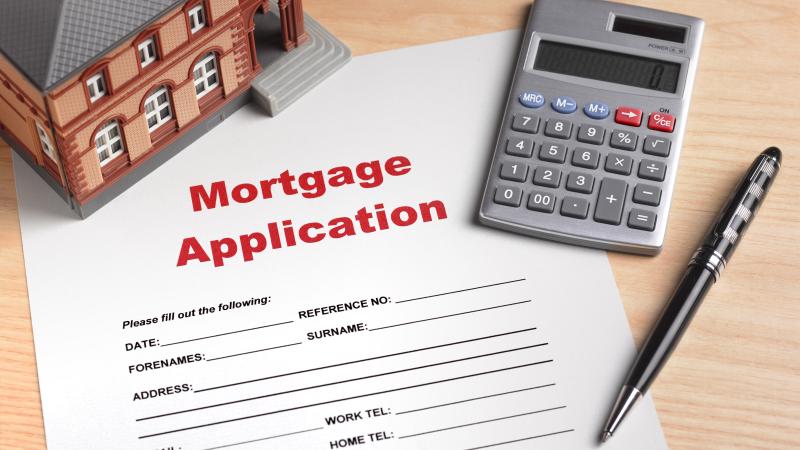Federal revenue continues to soar with Trump tax cuts, CBO report shows
The Tax Cuts and Jobs Act, which critics said would only benefit the rich, has led to a windfall into the government's coffers.
Tax cuts signed into law in 2017 by then-President Donald Trump have raised revenues for the federal government over the last five years, despite concerns among Democrats and other critics that the cuts would be a fiscal nightmare only benefiting the rich.
The government collected a record $4.9 trillion in revenue last year, according to the latest report from the Congressional Budget Office, a nonpartisan federal agency. That's nearly $500 billion higher than what the CBO had projected.
Receipts from corporate income taxes, meanwhile, were $425 billion, exceeding CBO's projection by 25%, while receipts from individual income taxes were $2.6 trillion, exceeding CBO's projection by 11%.
Federal revenues are now up about $1.5 trillion, or roughly 40%, since the Trump tax cuts went into effect at the beginning of 2018. By comparison, the cuts were initially estimated to cost the government $1 trillion, according to the Joint Committee on Taxation.
"We have higher tax revenue right now than we've ever had in the history of the country," Rep. Austin Scott (R-Ga.) told the John Solomon Reports podcast. "Think about that: Everything we've been through — COVID, inflation, all of the challenges of the last 36 months that our country has had — we have higher tax revenues than we have ever had in the history of the country."
Trump signed the Republican-backed Tax Cuts and Jobs Act into law in December 2017. The legislation simplified tax filing for many families and lowered the tax rates paid by most filers. It also cut business taxes, including lowering the corporate income tax rate from 35% to 21%.
Democrats and experts from left-leaning organizations blasted the tax cuts as a ploy to benefit the rich exclusively in a move that would cause deficits to soar.
"Last time Republicans held the majority, they enacted a $2 trillion tax scam that funneled massive windfalls to the biggest corporations and wealthiest families — which increased the deficit because the GOP did not provide offsets," Rep. Nancy Pelosi (D-Calif.) said Monday in a press release, echoing a common talking point of hers.
President Biden has similarly said "all" of the tax cut benefits "went to folks at the top and corporations," a claim deemed "false" by the Washington Post's fact-checker. Biden's White House has also claimed the Trump tax cuts would add trillions to deficits over the next decade due to less revenue.
However, beyond raising revenues, the Tax Cuts and Jobs Act lowered taxes for all income groups, particularly the middle class, according to studies and government data.
Americans with adjusted gross income (AGI) between $50,000 and $74,999 saw a 15.2% reduction in average tax liabilities between 2017 and 2019, the year of the agency's most recent available data, according to an analysis by Americans for Tax Reform. During that same period, Americans with AGI of between $75,000 and $99,999 saw a 15.6% reduction in average federal tax liability.
In 2018, middle- and working-class Americans received tax cuts of between 11% and 88%, at least double that of wealthier taxpayers, according to an analysis of IRS income tax data by the Heartland Institute. Those earning between $500,000 and $1 million received single-digit cuts, and those reporting an AGI of between $5 million and $10 million paid just 3.5% less in taxes.
"It is the working class who have made the biggest gains under the Tax Cuts and Jobs Act," Rep. Jason Smith (R-Mo.), the new chair of the powerful House Ways and Means Committee, said in December to mark the five-year anniversary of the Trump tax cuts. "Not only did working families get to keep more of their paycheck, but their paychecks grew the fastest compared to every other income group."
Before the economic devastation caused by the COVID-19 pandemic, household incomes were rising at historic rates in the aftermath of the tax cuts.
Real median household incomes grew by more than $5,000 in 2018 and 2019 alone. By contrast, according to the Heritage Foundation, real median household income grew by a total of $7,600, or about $250 per year, in the 30 years prior to 2017.
Meanwhile, business investment increases spiked by the end of 2019 by 9.4% compared to the pre-tax cut trend, according to Tyler Goodspeed and Kevin Hassett, who served as acting chairman and chairman, respectively, of the Council of Economic Advisers in the Trump administration. For corporations, real investment was up by as much as 14.2% That finding echoes a 2021 report from the Heritage Foundation outlining major growth in wages and investment following the tax cuts.
Scott chided Democrats for arguing higher tax rates mean higher government revenue, noting Trump's individual tax cuts are set to expire in 2025 and warning there will be reduced federal revenue if that's allowed to happen. Republicans have called for extending the provisions but will likely face stiff resistance from Democrats.
"One of our real challenges is getting those tax rates that have spurred this economic growth extended," said Scott. "Again, we've got higher tax revenue than we've ever had in the history of the country. We don't have a tax rate problem; we have a spending problem."
The CBO estimated on Tuesday that the federal deficit increased to $418 billion in the first quarter of fiscal 2023 — $41 billion more than the first quarter of the previous fiscal year, when COVID-19 was still a prominent issue in daily life for many Americans.
While the CBO was substantially off with its revenue estimates for last year, the agency may hit closer to the mark this year.
"The report tells us less about the impact of tax changes dating to 2018, and more about CBO underestimating the speed of the recovery from the 2020 downturn and the revenue consequences of undoing the emergency fiscal response," said Douglas Holtz-Eakin, president of the American Action Forum. "With those two anomalies in the rearview mirror, CBO will likely be much closer to the mark in fiscal 2023."















